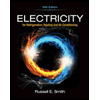We have two arbitrary complex numbers, a and b. The real and imaginary part of complex number a are denoted as ar and ai. The real and imaginary part of complex number b are denoted as brand b₁. The amplitude and phase of these two complex numbers are a❘ and ea, |b| and b, respectively. In other words, a = a + ja₁ = |a|≤0a, b = br + jb¡ = |b|≤0₁. (a) If ab*, then we must have |a| = |b|. (Q16) (b) If a = b*, then we must have a = 0. (Q17) (c) If a 1/b, then we must have |a| = 1/|b|. (Q18) (d) If a 1/b*, then we must have a = 0 b. (Q19) = Problem 2 (3 pts each). The following statements may or may not be always correct. If they are always correct, prove them using methods you learned in class. If not, find at least one counter- example.
We have two arbitrary complex numbers, a and b. The real and imaginary part of complex number a are denoted as ar and ai. The real and imaginary part of complex number b are denoted as brand b₁. The amplitude and phase of these two complex numbers are a❘ and ea, |b| and b, respectively. In other words, a = a + ja₁ = |a|≤0a, b = br + jb¡ = |b|≤0₁. (a) If ab*, then we must have |a| = |b|. (Q16) (b) If a = b*, then we must have a = 0. (Q17) (c) If a 1/b, then we must have |a| = 1/|b|. (Q18) (d) If a 1/b*, then we must have a = 0 b. (Q19) = Problem 2 (3 pts each). The following statements may or may not be always correct. If they are always correct, prove them using methods you learned in class. If not, find at least one counter- example.
Electricity for Refrigeration, Heating, and Air Conditioning (MindTap Course List)
10th Edition
ISBN:9781337399128
Author:Russell E. Smith
Publisher:Russell E. Smith
Chapter17: Commercial And Industrial Air-conditioning Control Systems
Section: Chapter Questions
Problem 22RQ
Related questions
Question

Transcribed Image Text:We have two arbitrary complex numbers, a and b. The real and imaginary part of complex
number a are denoted as ar and ai. The real and imaginary part of complex number b are
denoted as brand b₁. The amplitude and phase of these two complex numbers are a❘ and ea,
|b| and b, respectively. In other words, a = a + ja₁ = |a|≤0a, b = br + jb¡ = |b|≤0₁.
(a) If ab*, then we must have |a| = |b|. (Q16)
(b) If a = b*, then we must have a = 0. (Q17)
(c) If a 1/b, then we must have |a| = 1/|b|. (Q18)
(d) If a 1/b*, then we must have a = 0 b. (Q19)
=

Transcribed Image Text:Problem 2 (3 pts each). The following statements may or may not be always correct. If they are
always correct, prove them using methods you learned in class. If not, find at least one counter-
example.
Expert Solution
This question has been solved!
Explore an expertly crafted, step-by-step solution for a thorough understanding of key concepts.
Step by step
Solved in 2 steps with 2 images

Recommended textbooks for you

Electricity for Refrigeration, Heating, and Air C…
Mechanical Engineering
ISBN:
9781337399128
Author:
Russell E. Smith
Publisher:
Cengage Learning

Electricity for Refrigeration, Heating, and Air C…
Mechanical Engineering
ISBN:
9781337399128
Author:
Russell E. Smith
Publisher:
Cengage Learning